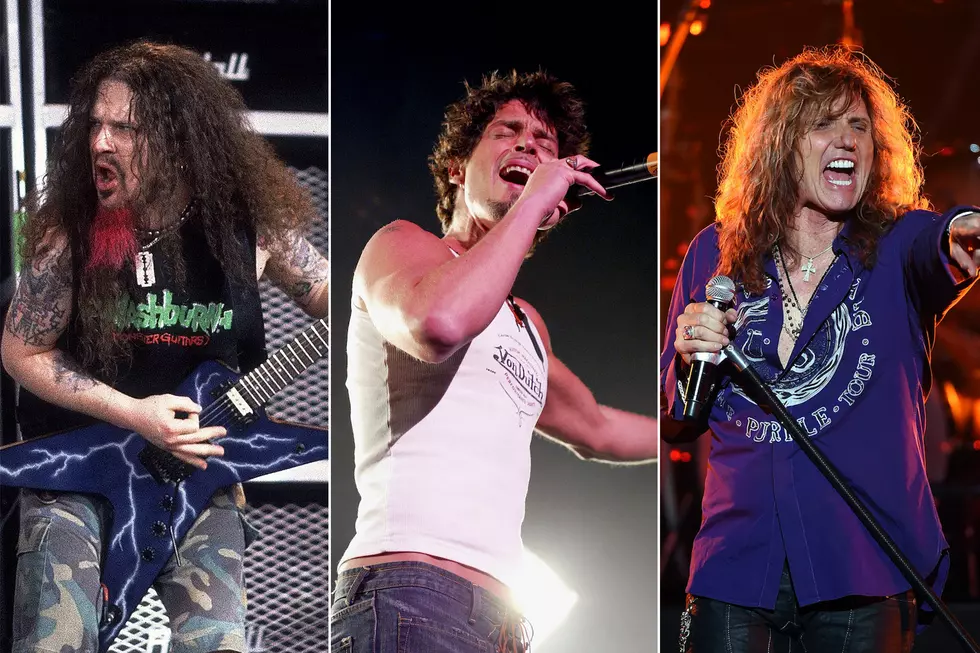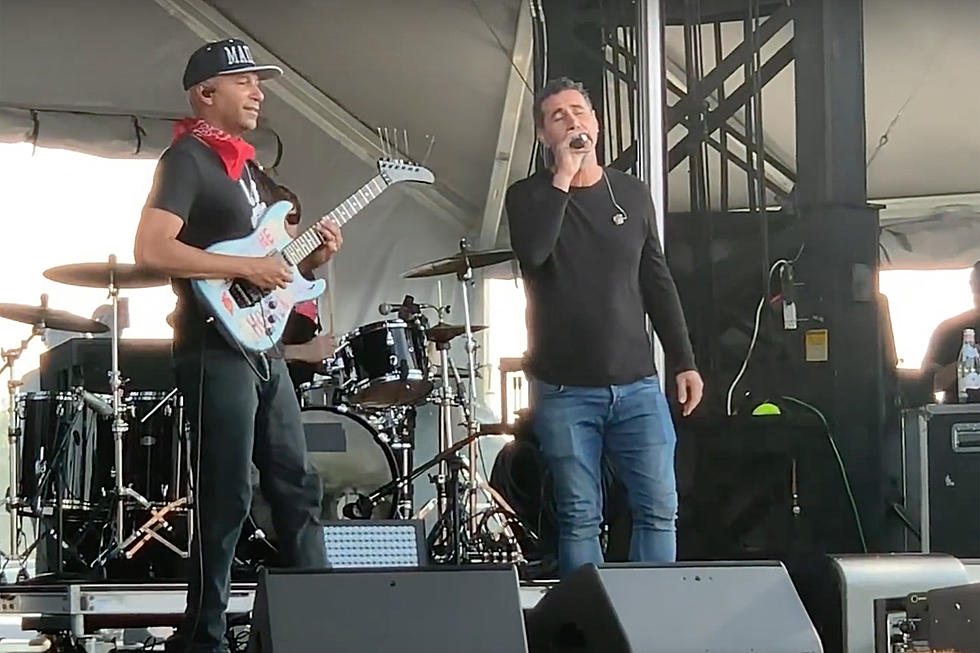15 Years Ago: Audioslave’s Debut Shatters Expectations
Zack de la Rocha’s abrupt departure from Rage Against the Machine in October of 2000 was a blow to the remaining core of the band who wanted to continue as a unit. Rather than seek out a replacement for the frontman, guitarist Tom Morello, bassist Tim Commerford and drummer Brad Wilk sought to launch an entirely new musical entity, tapping Chris Cornell, who hadn’t been in a band situation since Soundgarden called it a day in 1997. The result was Audioslave, and the self-titled record from the bona fide super group landed on shelves Nov. 19, 2002.
It was announced in late September that the release of Audioslave was to be bumped up one week from Nov. 26. To many who downloaded the internet-leaked demos of the project that May, the album couldn’t come soon enough as they had been waiting breathlessly for the fully-realized version of the LP. The previous month brought the initial single and lead off track, “Cochise.”
"Cochise was the last great American Indian chief to die free and absolutely unconquered,” Morello said in a statement. “When several members of his family were captured, tortured, and hung by the U.S. Cavalry, Cochise declared war on the entire Southwest and went on an unholy rampage, a warpath to end all warpaths ... Cochise the Avenger, fearless and resolute, attacked everything in his path with an unbridled fury. This song kinda sounds like that."
The song was a dream come true for both Rage and Soundgarden fans; showcasing Cornell’s caterwaul and the potency of the instrumental attack was a boon to starving early '00s hard rock fans. If that was indicative of the rest of the record, the project was going to take off brilliantly. To a degree, it was; the fury of the melding was expected and delivered on many levels, be it the stomp of “Gasoline,” the rumbling of “Bring ‘Em Back Alive” and the thunder of “Set It Off," very few admirers of either act could complain there.
The second single, “Like a Stone,” was a game-changer, for better or worse, regarding the union. It was one of the most mellow pieces the Rage guys had ever done together, and not only was a massive FM rock radio hit, it showed the deep and uncharted waters to which the outfit was willing to venture into in the name of separating themselves from their former affiliations. Yet the fourth single, “I Am the Highway,” would truly demonstrate how diverse a road Audioslave were willing to venture.
“We had written a bunch of pretty powerful rock songs,” Morello said on a promo interview compact disc sent to radio stations at the time. “It felt so free in rehearsal and I, kind of the night before, was strumming the chord progression from ‘I Am the Highway,’ because it’s very, very different than anything that’s on a Soundgarden or Rage Against the Machine record. So the end of the next rehearsal, I kinda started timidly strumming those chords, sort of pretending I’m putting my stuff away [laughs] and see if anything happens. Chris goes, ‘What’s that?’ and I go, ‘Oh, I don’t know, just a couple of chords …’ and the next day we worked that one up and it ended up being one of my favorite songs.”
The restraint of that track in particular is what led to the criticism of the album by those who wanted more heavy bluster and less surprising gentleness. That harmonious softness was woven into the sonic fabric of Audioslave though, and not only added to the band's appeal, but made them stronger than the collective sum of their prior parts. It also drew in an entirely new audience who may not have been attracted to Rage or Soundgarden.
The five-year, three-effort output was way too short in retrospect, and it would’ve been interesting to see where the reconstituted Audioslave might have gone had an oft-speculated reunion gone down before Cornell’s untimely passing.
Audioslave Albums Ranked
More From 107.7 WRKR-FM










